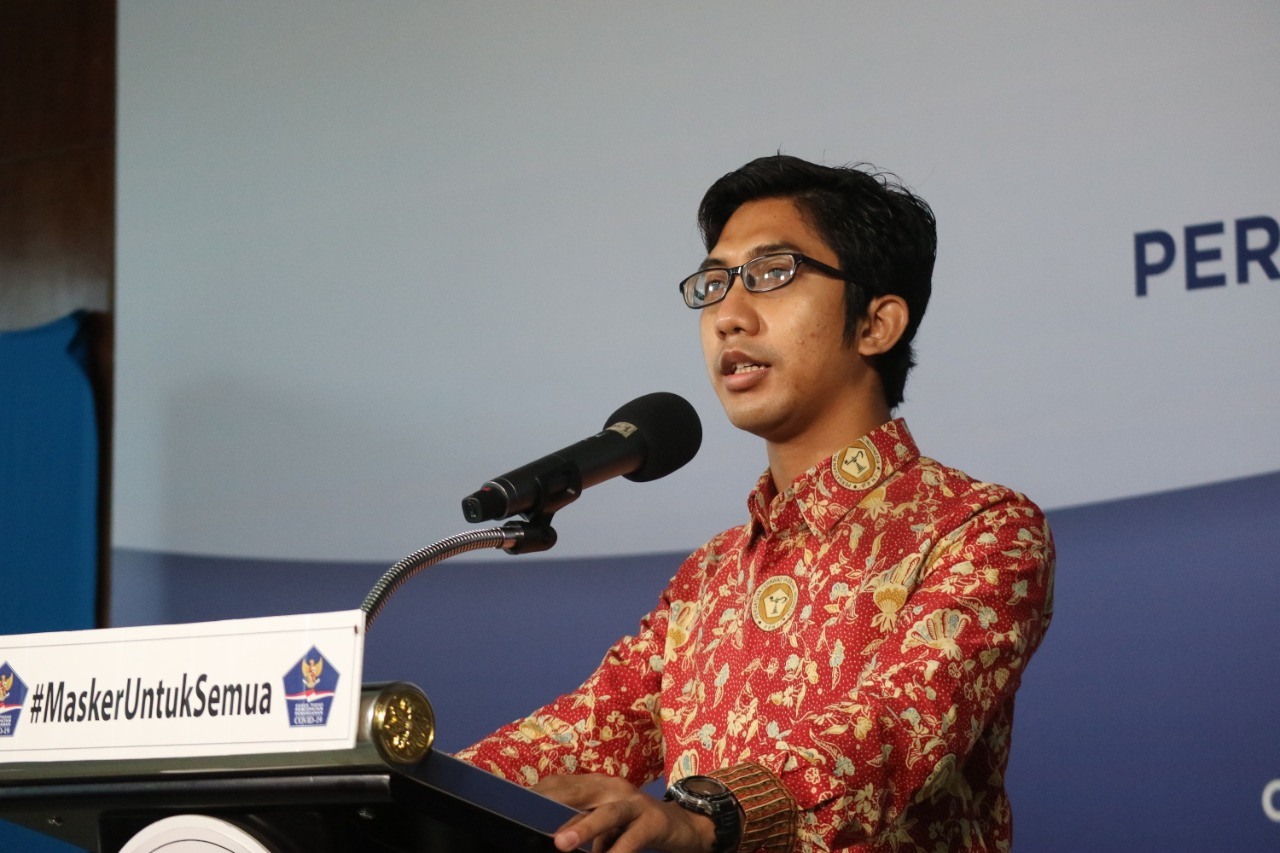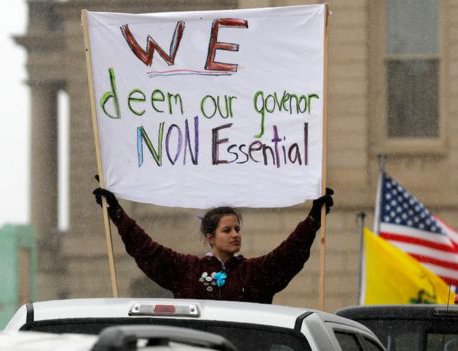Live Streaming
Program Highlight
Company Profile

Ani Hasanah
April
Chairman of the Task Force for Acceleration of COVID-19 Handling Lt Gen. Doni Monardo (BNPB)
Chairman of the Task Force for Acceleration of COVID-19 Handling Lt Gen. Doni Monardo
Chairman of the Task Force for Acceleration of COVID-19 Handling Lt Gen. Doni Monardo reemphasized the decision to prioritize referral hospitals for treatment of patients ailing from severe and critical symptoms of coronavirus disease (COVID-19).
During a virtual press conference after a meeting with President Joko Widodo in Jakarta on Monday, Monardo stated that moderately symptomatic patients will be referred to the Wisma Atlet Emergency Hospital in Kemayoran, Jakarta.
However, patients with mild symptoms will be advised to self-isolate at home under close monitoring of the local health offices.
"In connection with hospital management, referral hospitals are prioritized to treat patients with severe, serious, and critical symptoms," he revealed.
According to Monardo, the task force and medical workers will ensure that the best possible treatment is administered to all COVID-19 patients.
The task force will deploy some 25 thousand volunteers to support medical professionals at work. The volunteers will be stationed at various regions and will work in coordination with the local government and COVID-19 task force.
"To all governors, heads of districts, and mayors, we have conveyed that the work of these volunteers will be integrated under the coordination of the task force at the provincial, district, and municipality levels. Hence, it can be optimized to handle priority issues," he noted.
At the virtual meeting on COVID-19 handling on Monday, President Joko Widodo (Jokowi) delivered straightforward instructions to his aides to usher in improvements in the hospital reference system to handle overcapacity at some hospitals for tackling the COVID-19 pandemic.
"Improve the system of reference and the management of hospitals to handle overcapacity at our referral hospitals," Jokowi remarked at the Merdeka Palace in Jakarta.
As of Sunday (April 19), the number of COVID-19 patients in Indonesia had reached 6,575. As many as 686 patients had recovered, while 582 others died of the virus.
The number of patients under surveillance (PDP) has reached 15,646, while the number of people under monitoring (ODP) stands at 178,883.
The coronavirus infection has spread to all 34 provinces across the country, with the highest number of confirmed cases recorded in Jakarta, reaching 3,052; followed by 696 in West Java; 590 in East Java; 370 in South Sulawesi; 349 in Central Java; 324 in Banten; 135 in Bali; 107 in Papua; 96 in South Kalimantan; 89 in South Sumatra; and 81 in North Sumatra. (ANTARA)
The efforts encompass ensuring the availability of Personal Protective Equipment (PPE) for medical workers handling COVID-19 patients.
" President Joko Widodo (Jokowi) has ordered to ensure the provision of best-possible protection to medical workers as the vanguard against the novel coronavirus (COVID-19) pandemic.
The head of state urged his aides to take requisite measures to stave off further deaths of medical workers from COVID-19.
"The president has emphasized the need to offer optimum protection to doctors and other medical workers at the forefront of the battle," Doni Monardo, head of the Task Force for Acceleration of the COVID-19 Handling, stated after a virtual meeting with President Jokowi in Jakarta on Monday.
We do not want to see more doctors die owing to a lack of protection. We need to cooperate with all parties to ensure that doctors would receive better protection," he remarked.
At the meeting, Monardo drew attention to the president’s emphasis on the need to provide PPE that meet the World Health Organization (WHO) standard.
According to Monardo, the government has called for massive socialization on the use of telemedicine application to reduce individual interaction at hospitals and to curb COVID-19 transmission.
"There are 20 startups in the healthcare sector, and one million people have used the chatbox facilities. The health minister has also reported the declining number of consultations on COVID-19, and an increase trend of non-COVID-19 consultations," he stated.
As of Sunday (April 19), the task force had reported 6,575 confirmed COVID-19 cases in Indonesia, 686 patients cured of the disease, while 582 patients dying of the virus.
In addition, the task force reported 178,883 people under surveillance (ODP) and 15,646 patients under Surveillance (PDP). (ANTARA)
April
'They Need Mental Support': RSPI Sulianti Saroso Nurse Shares Experience Treating COVID-19

Nurdiansyah, a nurse who works at the Sulianti Saroso Infectious Diseases Hospital, shares his experience treating COVID-19 patients at a press conference held by the National Disaster Mitigation Agency (BNPB) on Sunday (Courtesy of the National Disaster Mitigation Agency (BNPB)
Besides medical treatment, COVID-19 patients also need companionship, a nurse at the Sulianti Saroso Infectious Diseases Hospital (RSPI) said.
Nurdiansyah shared his experience treating patients at the COVID-19 referral hospital in a press conference held by the National Disaster Mitigation Agency (BNPB) on Sunday.
"One nurse currently handles three to four patients," he said. "One patient can take up to one hour for each treatment."
He said that sometimes nurses might even spend three to four hours at a time with a single patient, because some patients are afraid to be left alone.
"We have to motivate patients and strengthen them mentally so that their immune system is also strengthened," he said. "They hold our hands and we encourage them. They need mental support."
Nurdiansyah said that nurses helped coach patients who experienced shortness of breath and tried to comfort patients with lighthearted television programs.
He said the first thing the nurses did before their shift every morning was pray for the patients' recovery and the medical workers' safety.
He said he was saddened that despite all their hard work, many workers faced hostility due to their close proximity to COVID-19 patients.
"Some nurses have been kicked out of their rooming houses and nurses' children are alienated by the neighbors due to the negative stigma surrounding COVID-19," he said.
Nevertheless, he thanked those in the public who have played their part to help slow the spread of the outbreak
"We, nurses, and medical workers are placed on the last line. We are the last resource to come for when infections happened. But the public is on the front line, so let's keep fighting the pandemic together," he said. (The Jakarta Post)
April

Protesters have taken to the streets in states across the US, demanding that governors reopen economies shut by the coronavirus pandemic. Rallies in Arizona, Colorado, Montana and Washington state took place on Sunday, following earlier protests in half a dozen states.
Agitation for easing restrictions has grown, despite the risk of a COVID-19 resurgence posed by reopening too soon.
US President Donald Trump has signaled support for the protests.
The US has become the center of the COVID-19 crisis, with over 735,000 cases and some 40,000 deaths - but signs have emerged that it is reaching the apex of the outbreak and that infection rates are slowing in some states.
Governors in several states have begun discussions to plan to reopen amid signs of the slowdown, but other regions remain under strict lockdown.
California Governor Gavin Newsom was the first in the nation to issue a state-wide stay home order, shuttering the country's most populous state since 19 March. Neighboring west coast states Washington and Oregon followed suit days later, putting their combined 11.5 million residents under a stay at home order since 23 March.
New York Governor Andrew Cuomo announced this week that the state would extend its stay home measures until 15 May. Speaking at his daily virus briefing on Sunday, Cuomo urged caution to residents, beset with "cabin fever" and desperate for their state to reopen.
"We still have to make sure we keep that beast under control," Cuomo said. "As we all get very eager to get on with life and move on."
"This is the only halftime in this entire situation."Trump, a Republican, appeared to endorse protests against strict lockdown measures, saying on Friday that orders in place in Minnesota, Michigan, and Virginia were "too tough".
The measures are needed to curb the spread of the virus.
Washington Governor Jay Inslee called the president's support of the protesters "dangerous", tantamount to encouraging "insubordination" to state laws.
"To have an American president to encourage people to violate the law, I can't remember any time in my time in America we have seen such a thing," he said on ABC News on Sunday. (BBC)



